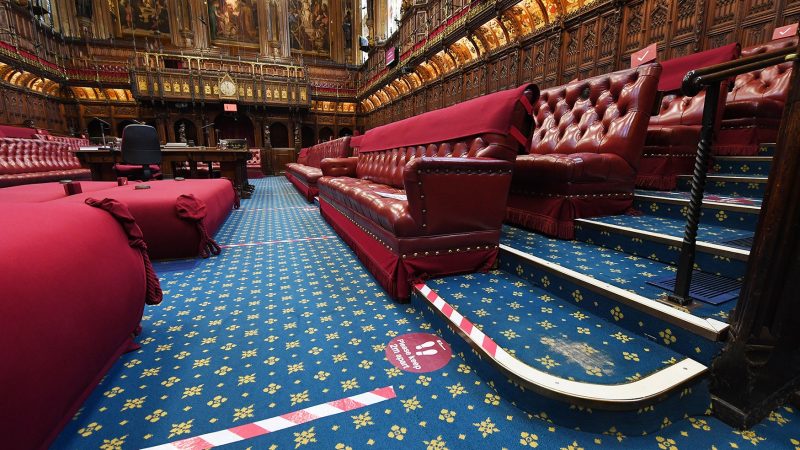
For much of the early period of the coalition government, the health and social care bill faced intense scrutiny by parliament, especially in the House of Lords – including a pause in its passage, after panic-stricken ministers finally awoke to its likely negative effect on the NHS. Then, after the legislation was passed in 2012, parts of the health service chose to ignore or bypass core requirements of the Act to collaborate locally away from the cumbersome bureaucracy.
By 2017, proposals were made to repeal aspects of the Act – something endorsed a year later by the health and social care committee, and supported broadly across the NHS, which had been busy putting its own new structures and working practices in place. Today, another health and care bill is undergoing line by line examination in the Lords. Talk about squaring the circle.
The new bill would be relatively straightforward if it were only removing competition and bureaucracy. Yet it also includes proposals to extend the Health Secretary’s powers over the NHS – including an ability to interfere in local reconfigurations of services. Meanwhile, with further integration proposals and white papers about to emerge, and policy announcements on Academy Trusts and the nationalisation of GPs, the government’s lack of clarity raises issues about the entire scrutiny process.
Peers will, of course, plough on and try to make sense of it all. Indeed, the bill has been savaged by two powerful parliamentary bodies: the delegated powers and regulatory reform committee; and the constitution committee, which stated that the bill is “a clear and disturbing illustration of how much disguised legislation a bill can contain” and it “offends against the democratic principles of parliamentary scrutiny”. There’s no point beating about the bush – parliament is being treated with absolute contempt by NHS England.
New governance arrangements are confused, with health ministers struggling to explain them – even when officials come to their rescue with supposedly handy charts. Conservative peer Andrew Lansley reflected that while critics of the 2012 Act (of which he was a key architect) said it brought complexity, this new bill is far worse.
Central to the proposals are integrated care boards (ICBs) and integrated care partnerships (ICP). While the bill is virtually silent on ICPs, attempts are already being made to set up ICBs without waiting for Royal Assent – or indeed changes made in the normal course of parliamentary scrutiny. The chairs and chief executives of ICBs will be appointed by NHS England, suggesting they will permanently be looking up and not outward. So much for localism. Non-executives, meanwhile, will be nominees – an odd approach that could lead to conflicts of interest.
All of this ignores the tried and tested model for boards, with chairs and non-executives appointed by the organisation based on its requirements, as well as some oversight to ensure due diligence and proper processes. The nominee approach has also resulted in a rather inevitable stream of proposals from public health, mental health and staff representatives that may make it impossible to implement. Plus, there’s a level of absurdity, with NHS England inventing restrictions that bar elected councillors. A missed opportunity, therefore, to open up commissioning to ensure the voices of patients, carers and the public more broadly are heard.
Then we come to procurement. The central aim of the bill is to remove the presumption that health services had to be subject to competitive tendering – a major overhead, which over the past decade does not appear to have achieved any significant improvements in patient care. Along with changes to how providers are to be selected would go changes to how money flows from commissioners to providers – the tariff being part of that solution.
Lord Lansley has pointed out that the aims of the NHS could have been met without any further legislation, as the powers were already in the 2012 Act. Nevertheless, the process for procurement and pricing is to be changed – something not defined in the bill, and which health minister in the Lords has (so far) been unable to explain when pressed. Such absence of detail just fuels suspicion and the inevitable raft of safeguarding amendments.
The whole bill is a poorly thought-out mess, based primarily on the views of what senior NHS managers want and without any sensible push back from ministers. Just to make things even worse, however, the government has also decided to redefine how the social care costs cap is calculated. Amendments have had to be tabled in the Lords because of drafting errors made on the rushed attempt while the bill was still in the Commons. But the logic of using this route to deal with a small part of the necessary, and oft promised, wholesale reform of social care – as well as integration – is unknown.
All in all, it is hard to see the bill leaving the Lords unscathed.




More from LabourList
Government announce SEND reform in schools white paper
SPONSORED: ‘Industrial hemp and the challenge of turning Labour’s priorities into practice’
‘A day is a long time in politics, so we need ‘action this day’’